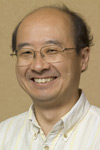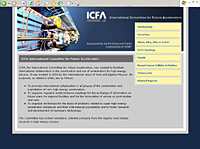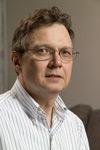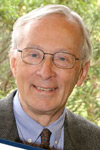 |
|
|
 |
Change Control Board Moves Forward with Finalizing BCD

Nobu Toge |
As the Baseline Configuration Document (BCD) becomes semi-stabilized, the canonical mission of the Change Control Board (CCB) is to act as a body to make decisions on important changes to the baseline configuration, if and when necessary. Nobu Toge is assigned to chair this board.
"The most important element is to ensure the transparency and equitability of this process on top of technical soundness, so that all affected parties can act in good synchronization.", said Toge. "The CCB members are currently drafting the 'official procedures' to follow in these Change Control processes. We will be consulting with Barry, the Executive Committee and chairs of the two sister boards, the R&D Board and the Design Cost Board. The current goal is to come up with this 'procedure' by the time of Bangalore meeting."
The Change Configuration Board consists of nine members from all three regions involved with the ILC: Carlo Pagani, Graham Blair, Daniel Schulte, Tom Markiewicz, Shekhar Mishra, Warren Funk, Kiyoshi Kubo, Masao Kuriki and Nobu Toge (chair).
Making too many configuration changes too often may hinder the R&D and engineering efforts. At the same time, important change decisions may not be deferred too long.
"I note that we have only a limited amount of time towards completing the Reference Design Report (RDR), and the time is going to fly by. I suspect that some 'planning ahead', if not a totally rigorous one, might be necessary. That is, we need to try to anticipate what sort of major change proposals might be brought to the table and in what sort of time scales, so that people can roughly mark up their calendars beforehand.", Toge said.
Read more...
--Youhei Morita |
 |
|
|
 |
Upcoming meetings, conferences, workshops
American Linear Collider Physics Group - Detector Simulation Workshop
Boulder, Colorado, U.S.A., 9-11 January 2006
Control System Meeting: RF and Timing Specifications
FNAL
Contact: Sergei Nagaitsev (nsergei@fnal.gov)
John Carwardine (carwar@anl.gov)
17 January 2006.
Area Systems Leaders Meeting
KEK
19-20 January, 2006
Open Symposium on European Strategy for Particle Physics
LAL, Orsay, France, 30 January-1 February 2006
LET Meeting
CERN, 8-11 February 2006
EUDET Kick-Off Metting
DESY, 15-17 February 2006
LCWS 2006
Bangalore, India, 9-13 March 2006
ILC GDE Meeting
Bangalore, India
9-11 March, 2006
International Accelerator School for Linear Colliders
Sokendai, Graduate School for Advanced Studies
Hayama, Japan, 19-27 May 2006
|

ICFA has a new look. Yesterday ICFA launched its newly designed Web site, which also features a new logo for the committee. Explore the new Web site. |
|
 |
 |
|
|
 |
Fermilab's Garbincius Chairs GDE Design Cost Board

Peter Garbincius |
Last month in Frascati, GDE Director Barry Barish announced the establishment of the Design Cost Board with Fermilab's Peter Garbincius as chairperson. The primary role of this board is to oversee the preparation of the Reference Design Report, a document to be developed by the end of 2006, which will include a detailed design and cost estimate for the International Linear Collider.
The Design Cost Board consists of ten members from all three regions involved with the ILC: Wilhelm Bialowons, Atsushi Enomoto, Jean-Pierre Delahaye, Robert Kephart, Olivier Napoly, Ewan Paterson, Nan Phinney, Tetsuo Shidara, Nobuhiro Terunuma, and Peter Garbincius (chair).
"In the simplest terms, our mission is to produce the Reference Design Report.,", said Garbincius. "The Design Cost Board will provide guidance and structure for the preparation of the report, and we will define in-depth requirements for the elements of the cost estimate."
Read more...
--Elizabeth Clements
|
 |
|
|
 |
Global R&D Board Evaluates Current Program

Bill Willis |
The primary purpose of the newly appointed Global R&D Board is to oversee and define a balanced R&D program for the three regions involved with the International Linear Collider. Slightly different from the other two boards GDE Director Barry Barish established, the R&D board will have to coordinate the many existing projects and evaluate new proposals, which are funded in three different regions.
"There has not been an attempt to explicitly coordinate these programs.", said Columbia University's Bill Willis, who is chair of the board. "At this moment there is a lot of R&D already going on in many different places. This means that we cannot follow our mandate in a simple way, which would be to ask for proposals. We start without being able to ask for fresh proposals, so it is like getting to the theatre well after the movie started."
Read more...
--Elizabeth Clements |
 |
|
|
 |
From Science Magazine
23 December 2005
BREAKTHROUGH OF THE YEAR:
Breakdown of the Year: U.S. Particle Physics
...But particle physicists from Europe and Asia aren't celebrating the
passing of the torch from the United States. They say a strong U.S.
program is essential for the survival of the field, especially if they
hope to build the proposed International Linear Collider (ILC), a
multibillion-dollar global facility that most see as the future of
particle physics. "It is very clear that without the participation of the U.S. it is impossible" to build the ILC, says Akira Masaike of the Japan Society for the Promotion of Science in Washington, D.C.
Read more...
|
|
 |
 |
|
|
 |
|
Happy New Year
As this New Year begins, I would like to briefly remark on our progress and status to date, as we begin to undertake a new set of tasks and goals for 2006. During this past year, the GDE was formed, first by my appointment as Director last March, and then by 49 members joining the team in time for the Snowmass workshop, which was held in August.
At that workshop the GDE met face-to-face for the first time, and we used the meeting to begin the process of reaching our first milestone -- defining a baseline configuration for the ILC. This baseline configuration will be used as the basis for the reference design and costing effort that we are undertaking this year.

Barry Barish |
We should be proud of our success at achieving our first goal! It wasn't all that easy. Defining this baseline configuration required a lot of hard work. We had to make many hard decisions in a very short time and in many cases with limited information. But our process worked well, and we succeeded in producing a baseline configuration document (BCD) that was discussed and endorsed at the second GDE meeting in Frascati, Italy in December.
The most contentious issue in the BCD concerned the proposed strategy for the option to be able to increase the energy to 1 TeV from the baseline 0.5 TeV machine. The issue involves both finding the best strategy for upgrading the energy and determining what investment needs to be included in the original project, in order to insure upgradeability is a viable future option. I will discuss this topic more in a future column.
Read more...
--Barry Barish
Director's Corner Archive
|
 |
|
|
 |
Pre-register for LCWS06
by 15 January
Pre-register for the 2006 Linear Collider Workshop in Bangalore, India by 15 January. More information about the workshop is available online. A GDE meeting will take place in conjunction with LCWS06.
ILC Related Preprints
astro-ph/0512569
22 Dec 2005
New Developments in Extra-dimensional Dark Matter
hep-ph/0512302
Thu, 22 Dec 2005
Branon Phenomenology
hep-ph/0512260
20 Dec 2005
Supersymmetry Simulations with Off-Shell Effects for LHC and ILC
hep-ph/0512246
20 Dec 2005
Towards a precise measurement of the top quark Yukawa coupling at the ILC
hep-ph/0512232
19 Dec 2005
Higgs Boson Search at e+e- and Photon Linear Colliders
hep-ph/0512193
15 Dec 2005
Anomalous gauge couplings of the Higgs boson at high energy photon
colliders
physics/0512192
21 Dec 2005
Monte Carlo based studies of a polarized positron source for International
Linear Collider (ILC)
|
|

